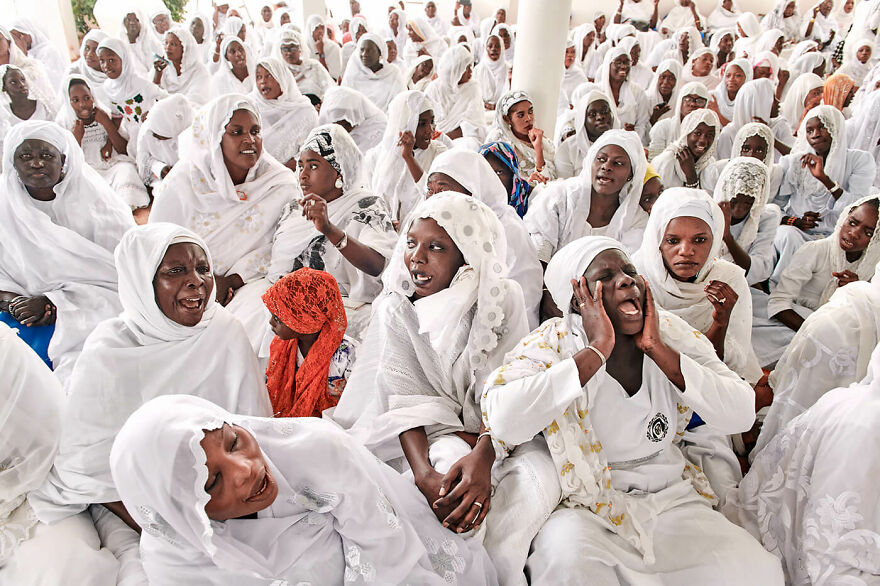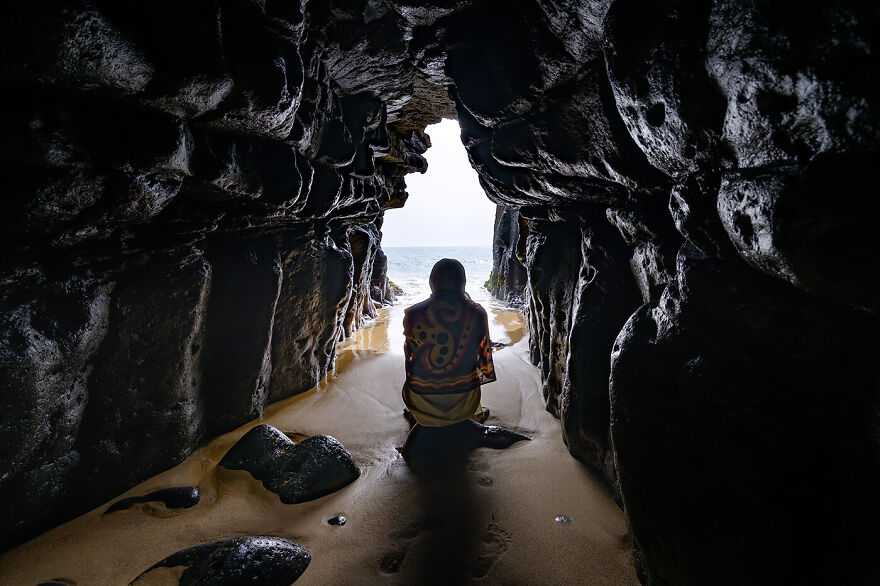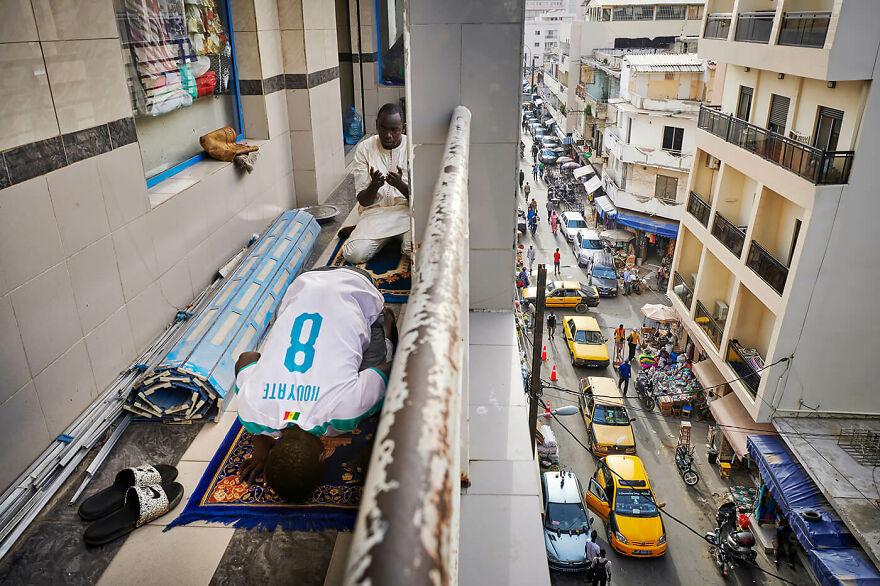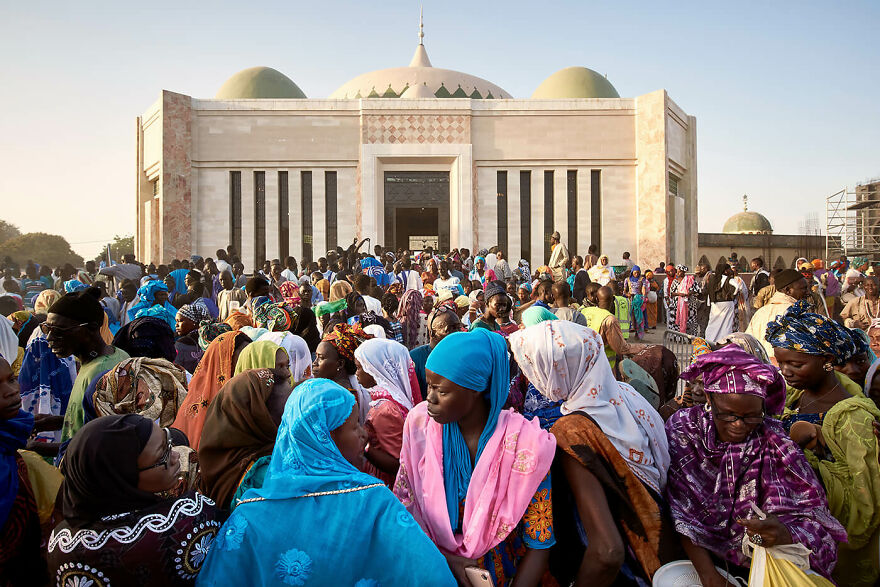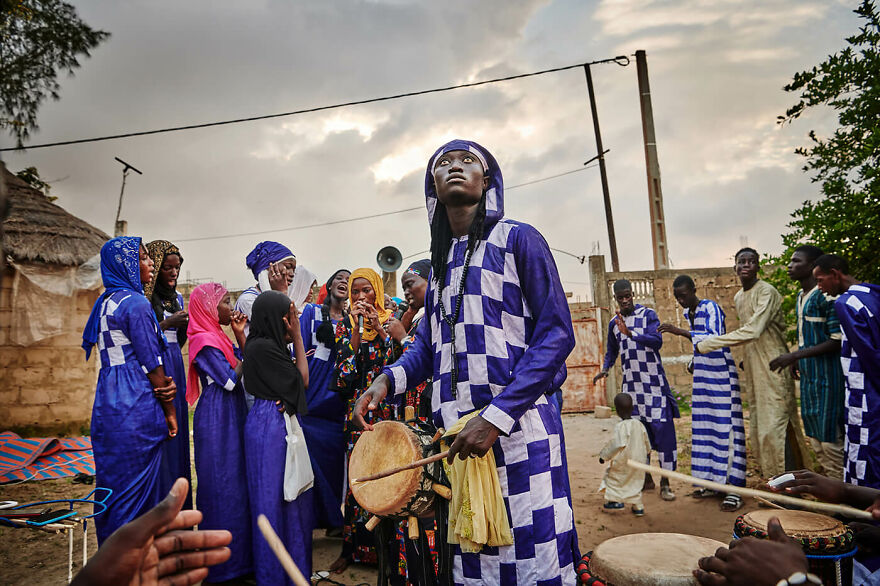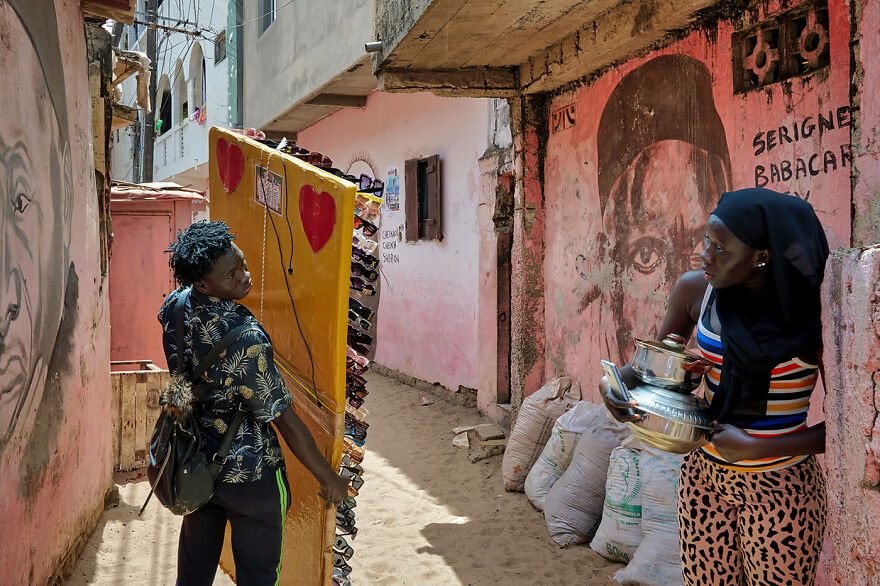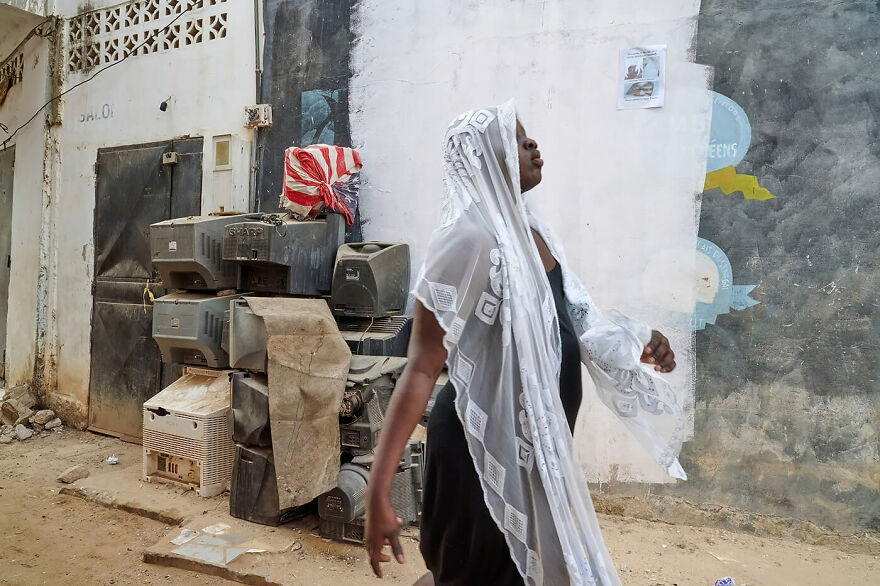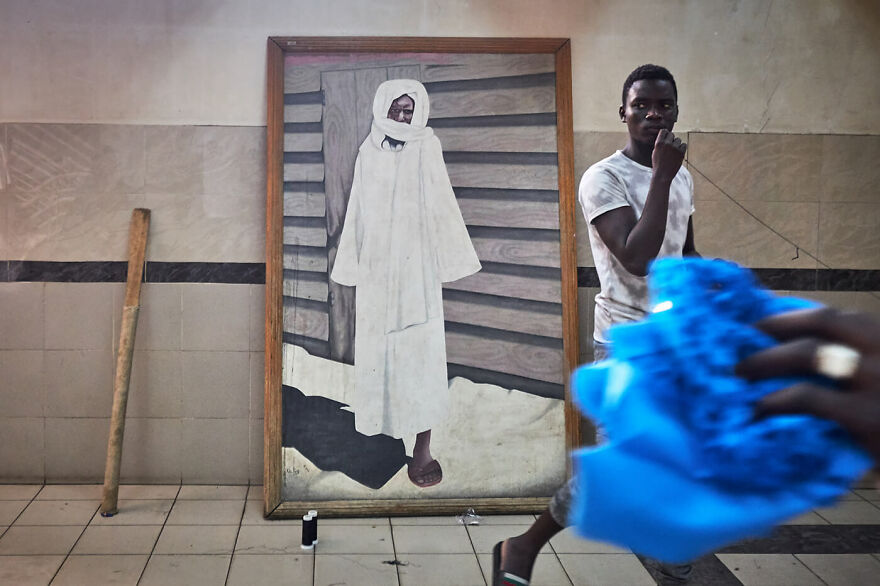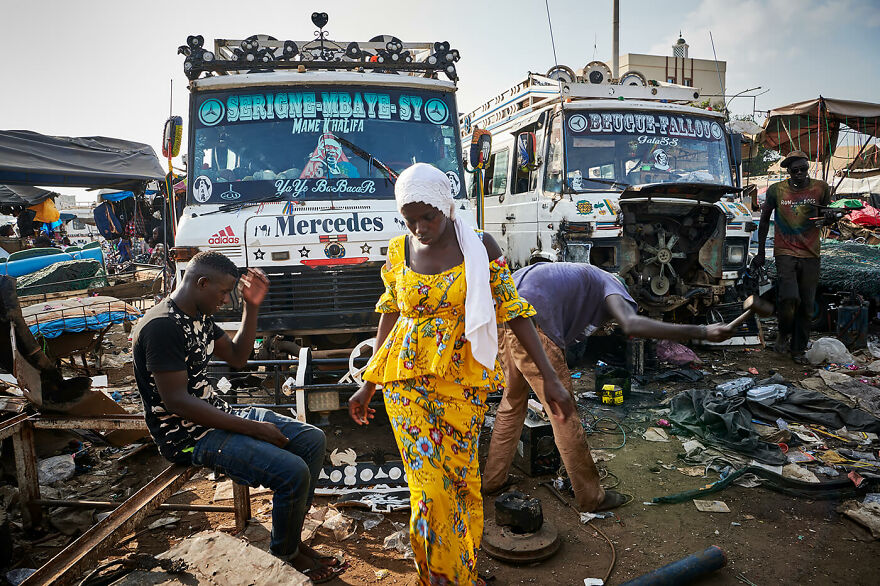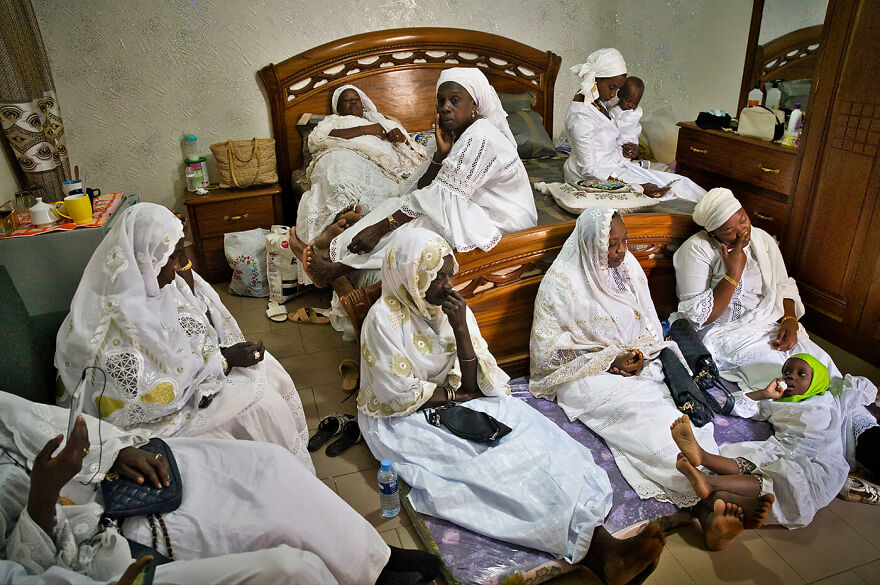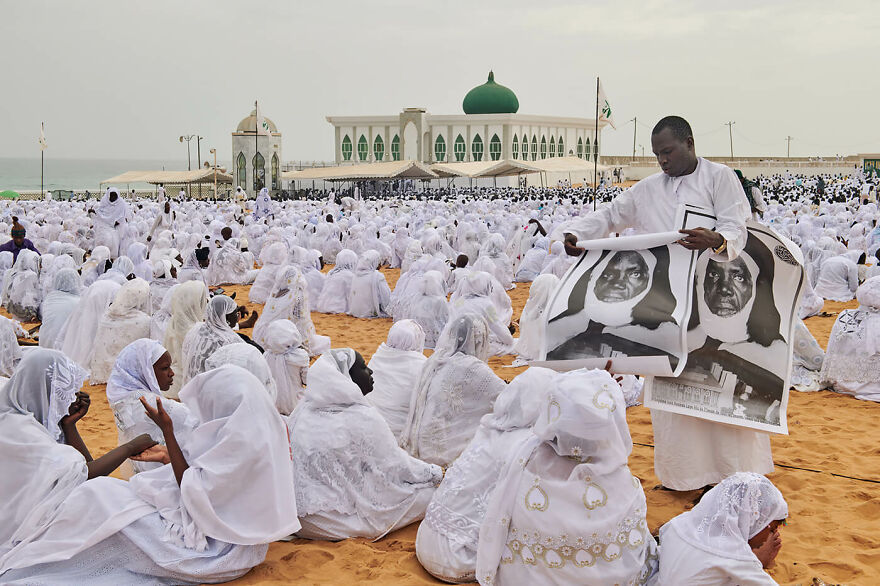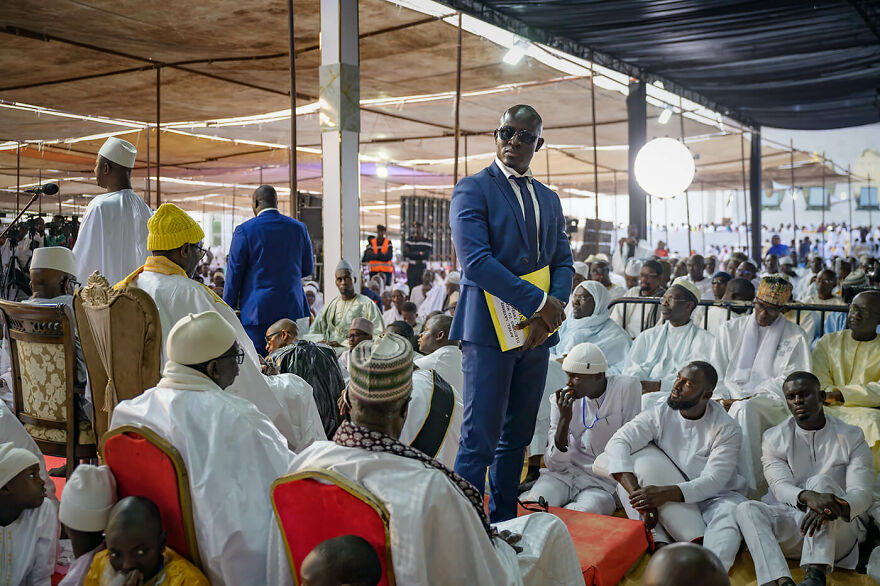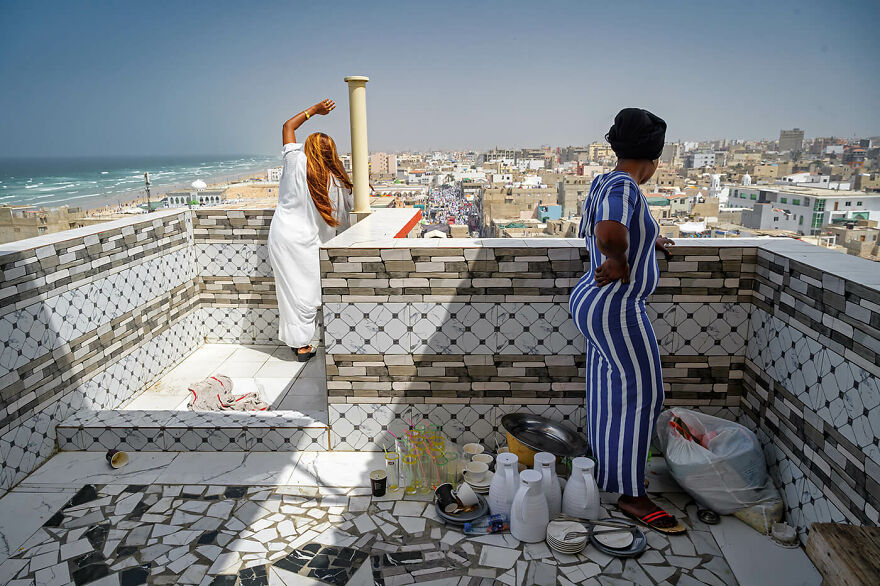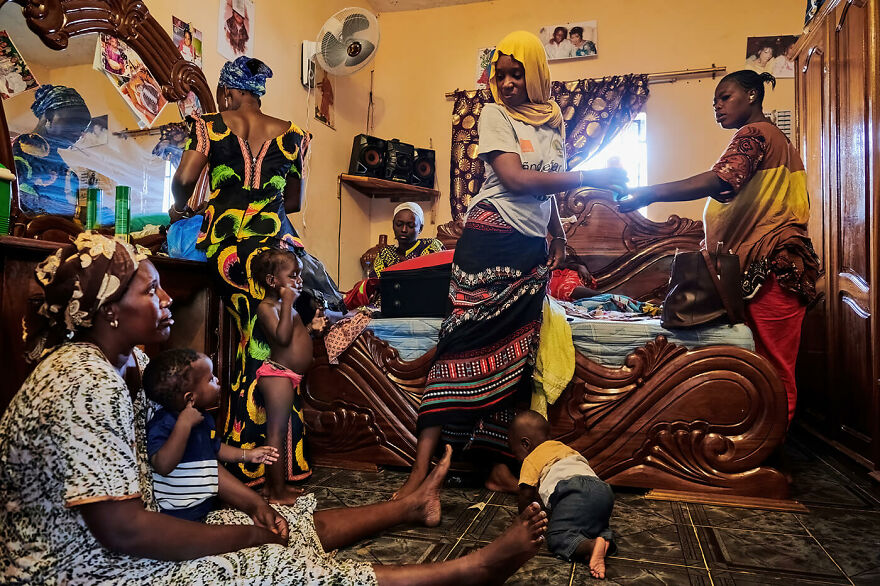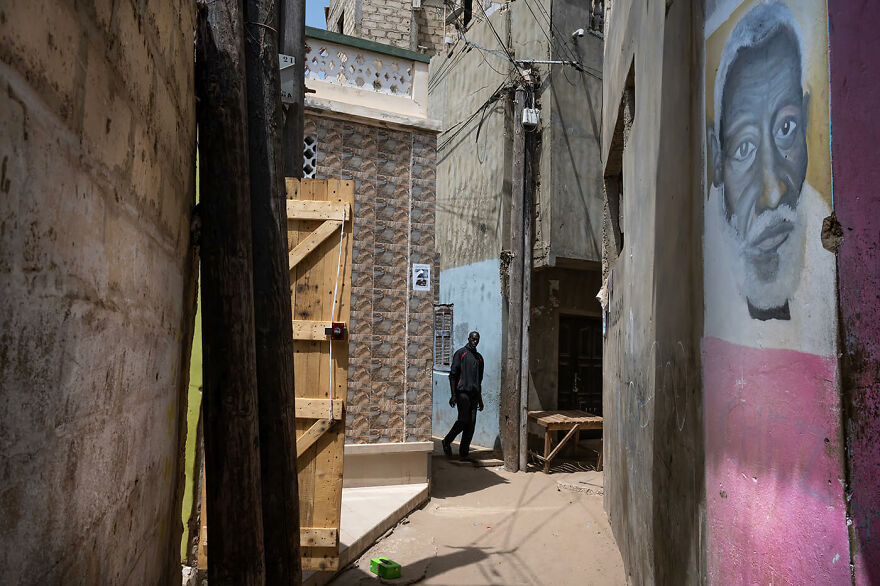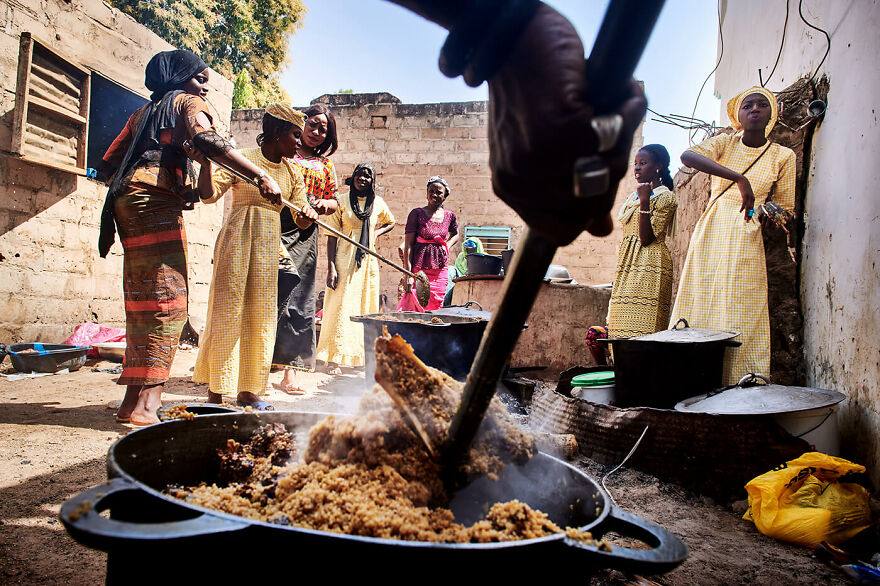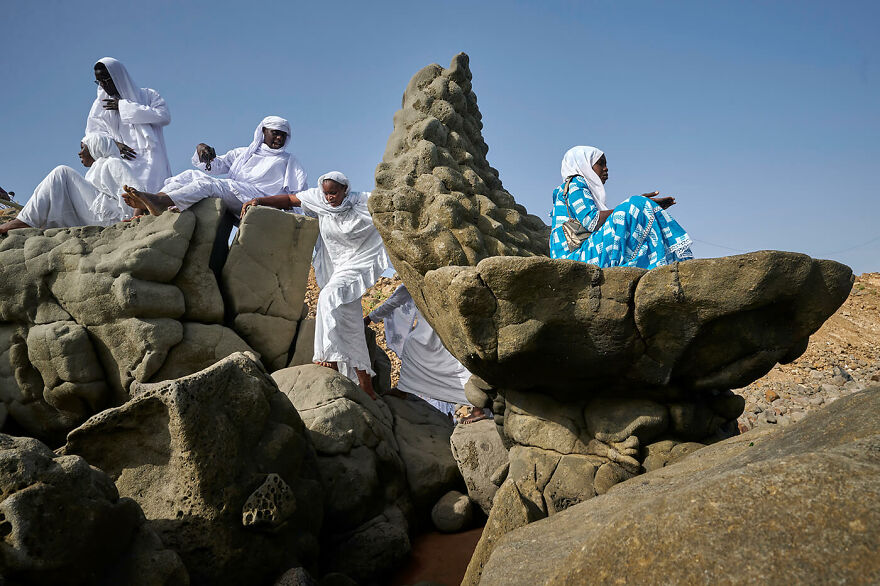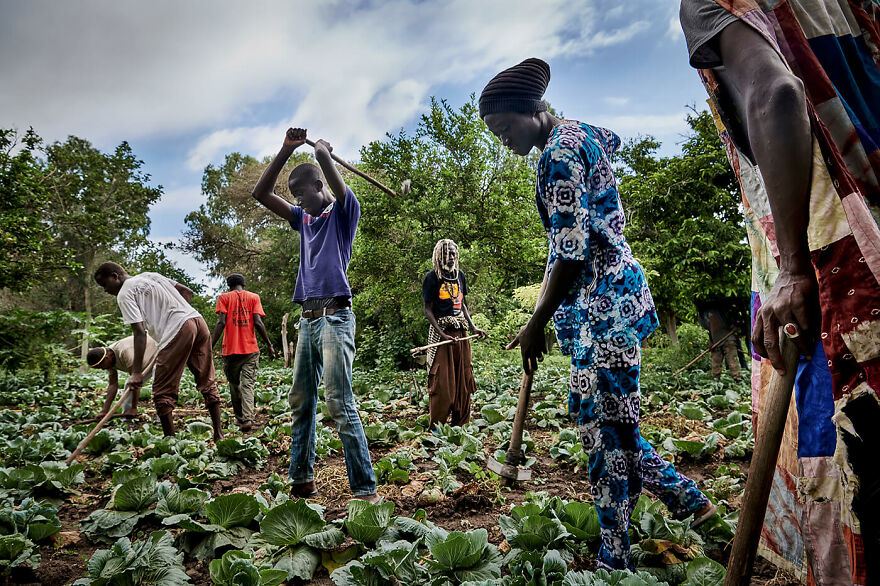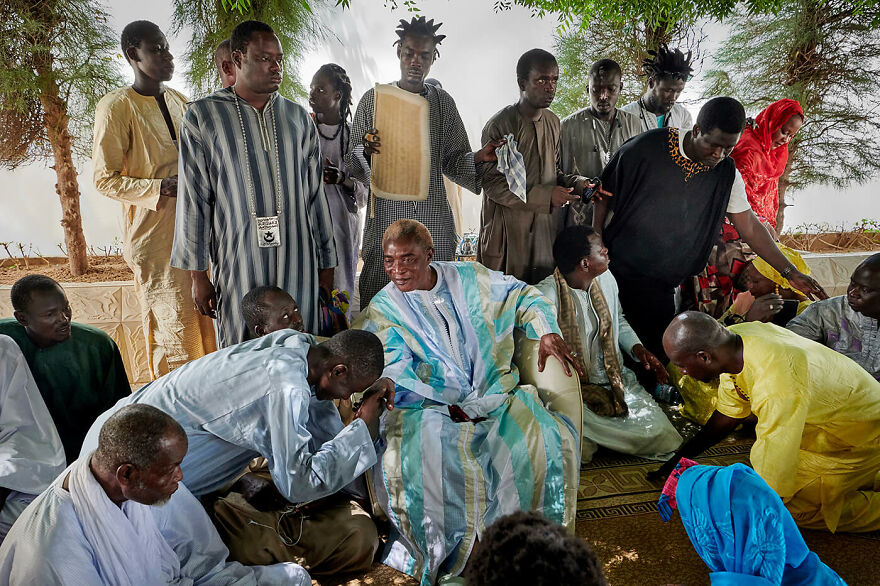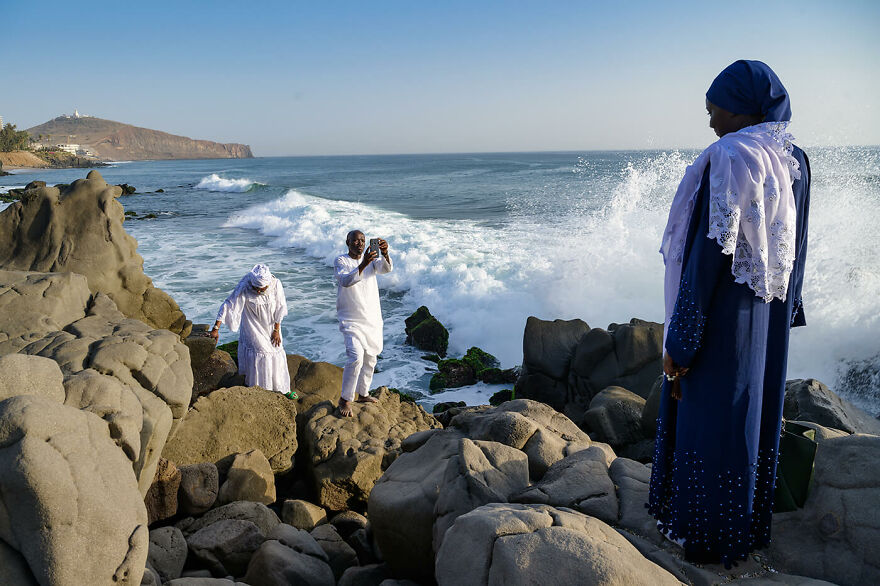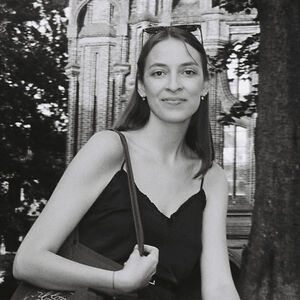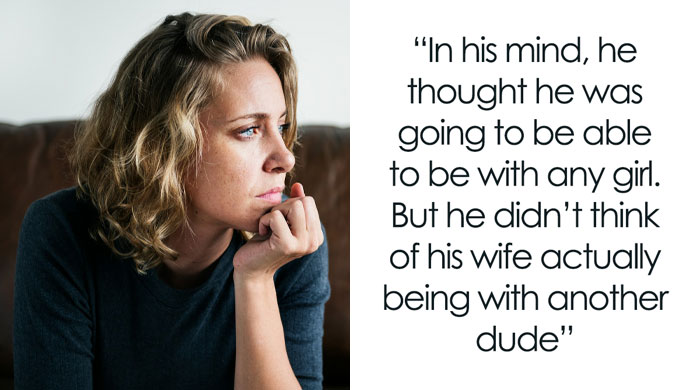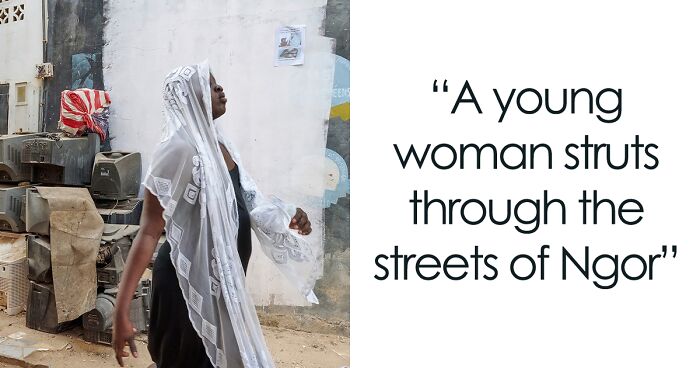
20 Photographs Documenting The Islamic Society In Senegal By Christian Bobst
All About Photo is pleased to present "The Sufi Brotherhoods of Senegal" by Christian Bobst. Part of the exclusive online showroom developed by All About Photo, this exhibition is on view for the month of May 2023 and includes twenty photographs from the series "The Sufi Brotherhoods of Senegal". Christy Karpinski is the curator for this month's show.
After having worked for more than a decade in the advertising industry as an award-winning art and creative director, Christian Bobst turned to reportage. He has won many photography awards, including the 2016 World Press Photo Award.
More info: all-about-photo.com | Instagram | Facebook | twitter.com | youtube.com
This post may include affiliate links.
"The Chants Of The Layene Brotherhood"
©Christian Bobst
"Women gather to chant at the home of the supreme spiritual leader of the Layene Sufi brotherhood in Yoff, Dakar. Sufism is a mystical branch of Islam in which prayer and meditation are regarded as more significant than dogmatic rules. Every weekend, the Layenes practice the "chants religieux", a form of meditation that can induce a trance with its energetic and repetitive chants."
This is how Christian Bobst explains this photography series:
"The photographs in this series are part of a long-term project that began in 2012 and was last updated with new pictures in March 2023. The aim is to provide a broader audience with an insight into an Islamic society that is in many ways very different from those commonly known in the Arab world. The series explores the spiritual practices and rituals of the Sufi brotherhoods and how they shape everyday life in Senegal. It also shows how they maintain peace and stability in the country, as well as their own power and wealth, by promoting a tolerant form of Islam rather than dogmatic rules and oppression."
"A Woman Prays In The Grotto Of The Layenne Brotherhood"
©Christian Bobst
"A woman prays in the grotto of the Layenne brotherhood in les Almadies in Dakar. According to a legend of the Layenne brotherhood, the soul of the prophet Muhhamed waited for more than a thousand years to return after his death in Medina in 632. Night after night, his soul traveled around the world as a light, only to return to this grotto in the morning. Until the Prophet arose to renew Islam. And his skin was black, as the legend says."
"Ora Et Labora"
©Christian Bobst
"Textile workers bow during evening prayers on a balcony at the Touba Commercial Centre in Sandaga, Dakar's bustling business district. Most believers pray 5 times a day, even during work and in the busiest places. Following the philosophy of "Ora and Labora" preached by the founders of the brotherhoods, prayer and work are very important in Senegalese society."
"In Senegal, 95 percent of the population is Muslim and belongs to a Sufi brotherhood, more than any other Muslim population in the world. These brotherhoods, also known as tariqas, are spiritual orders that combine elements of Islam with traditional African beliefs and practices. Their teachings emphasize the importance of non-violence, tolerance, and respect for others."
"Yearly Pilgrimage For The Source In Porokhane"
©Christian Bobst
"Once a year, thousands of believers gather at the mausoleum of Sokhna Mame Diarra Bousso (1833-1866) for a pilgrimage. Mame Diarra is the only woman to whom the Senegalese dedicate a Magal, as the pilgrimage is called in Senegal. As the mother of Amadou Bamba, the founder of the Mourid Brotherhood, she is often referred to as 'the source'. Near her mausoleum in Porokhane is a fountain from which holy water gushes. Devotees hope the water will bring healing, strength, and blessings."
"Followers Of The Baye Fall Brotherhood Perform A Religious Ceremony"
©Christian Bobst
"Followers of the Baye Fall, a subgroup of the Mourid Brotherhood, perform a religious ceremony that lasts until late at night. During the ceremony, followers, both men and women, drum, dance, and chant prayers. These chants and rhythms regularly fill the night air in Senegal. While in other muslim cultures fundamentalists may prohibit music, in Sufism it is an integral part of the religious practice."
"Although Senegal has a secular form of government, Islam is much more than a religion in the country. It is a way of life that permeates the entire society. The marabouts, or spiritual leaders of the brotherhoods, are highly respected and influential figures in Senegalese society. The Senegalese even practice a strong personality cult around the founders of the Sufi brotherhoods and their descendants. Their names and portraits can be found on countless murals, on the lettering of colorfully painted buses, as posters in shopping malls and textile factories, and on almost all taxis."
"The Vigilant Eyes Of The Marabouts"
©Christian Bobst
"The eyes of a street vendor selling sunglasses meet those of a girl carrying cooking pots under the watchful gaze of the marabouts depicted on murals in the streets of Dakar's Ngor neighborhood. In Senegal, spiritual leaders and clerics are called marabouts. The portraits of marabouts are ubiquitous in everyday life in this West African country, where Islam is not only a religion but a way of life that permeates the entire society."
"A Young Woman Struts Through The Streets Of Ngor"
©Christian Bobst
"A young woman walks past a store selling used televisions. There is hardly a street corner where there is not at least a small reference to the Sufi brotherhoods to be discovered - like the wall poster at the top right of this photo, which advertises a spiritual event with the face of Amadou Bamba, the founder of the Mourid brotherhood."
"There are several major Sufi brotherhoods in Senegal, each with its own unique teachings and practices. The most prominent of these are the Tijaniyya, the Muridiyya, the Qadiriyya and the Layene. These brotherhoods have millions of followers in Senegal and around the world. Many of their followers are involved in various economic activities, such as agriculture and trade, that contribute to the overall economic development of the country.
But where there is light, there must be shadow. Some accuse the brotherhoods of mafia-like structures and shady business dealings. There is also frequent criticism of the contributions that the faithful must pay to the spiritual leaders and the brotherhoods. And last but not least, there are those who say that the brotherhoods are in the pockets of politicians and prevent important reforms that hinder the country's progress.
Nevertheless, it's undeniable that the brotherhoods promote social cohesion and unity among different ethnic and religious groups. Perhaps because of this, Senegal has never experienced a terrorist attack and is considered an anchor of stability in West Africa."
"Serigne Amadou Bamba Mbacké At The Touba Commercial Center"
©Christian Bobst
"Textile workers walk past a painting of Amadou Bamba Mbacké in a commercial center. Serigne Touba, as Bamba is also known, watches over countless streets, shops, and taxis throughout Senegal. Bamba (1853-1927) is the founder of the Mourid Brotherhood, and his teachings still have a strong influence on everyday life in the country. He encouraged the Senegalese not only to adopt a pacifist and tolerant attitude, but also to become entrepreneurs and to work hard."
"Buses Being Refurbished For A Pilgrimage"
©Christian Bobst
"A girl walks among workers assembling buses from used metal parts in an open-air garage in the centre of Dakar. These buses will transport hundreds of thousands of people to the Grand Magal in Touba, the annual pilgrimage of the Mouride brotherhood. The marabouts are omnipresent in Senegal, with stickers and inscriptions bearing their portraits on the windows of almost all the buses and also the taxis in the country."
"Women Gather In A Room During The 'Appelle Des Layenes'"
©Christian Bobst
"The women of an extended family have retreated to a room in a house in the Yoff neighborhood, while outside in the streets tens of thousands of Layenne followers have gathered for the annual gathering of the brotherhood, called the Appelle des Layenes. The many religious events bring together extended Senegalese families, some of whose members are scattered in different countries. In this way, the annual pilgrimages ensure social cohesion and the distribution of financial resources."
the little girl leaning on the two woman :-D she looks so comfortable
"A Merchant Sells Posters Of Seydina Issa Rohou"
©Christian Bobst
"A merchant sells posters of Seydina Issa Rohou (1909-1949), the eldest son of the founder of the Layene Brotherhood, while the Layene community gathers in the courtyard of their founder's mausoleum in Dakar to attend the Korité, as the celebration of the last day of Ramadan is called in Senegal. The Senegalese Sufi Brotherhoods all practice extensive personality cults around their founders and also their descendants."
"Bodyguards Protect A Minister Speaking To The Layene Community"
©Christian Bobst
"Two bodyguards protect the Senegalese Minister of the Interior as he addresses the Layene community gathered in Yoff for the 'Appelle des Layenes,' the largest annual gathering of the Layene brotherhood. With over 90% of Senegalese voters belonging to a Sufi brotherhood, politicians are careful to maintain good relations with religious communities."
"At The Top Of The Tallest Building In Yoff"
©Christian Bobst
"A maid tends to dishes and garbage while the wife of the owner of the tallest house in Yoff waves to friends on the street who are attending the annual gathering of the Layene Brotherhood. Her husband has also come home for the occasion. He works year-round as a regulator technician at a hospital in New York. In Yoff, he invested his hard-earned money in building a tower for his Senegalese wife and family that dwarfs all the other houses in the neighborhood like a skyscraper."
"Women Retreat To The House During The Grand Magal"
©Christian Bobst
"On the first morning of the Grand Magal in Touba, Senegal's largest pilgrimage, a group of women retreats into the Ndiaye family home while the men gather in the courtyard to pray. In Senegalese society, women are considered the center of the family. Mothers are praised as the glue that holds the family together. They are also considered responsible for raising the next generation of good Muslims."
"Mural Of Serigne Saliou In The Streets Of Ngor"
©Christian Bobst
"A wall in the village of Ngor is decorated with the portrait of Serigne Saliou, an important spiritual leader of the Sufi Brotherhood of the Mourides. In Senegal, 95 percent of the population is Muslim and belongs to a Sufi brotherhood, more than any other Muslim population in the world."
"Pilgrims Prepare Big Quantities Of Thiebou Yap"
©Christian Bobst
"Followers of the marabout Serigne Touba Khouma in Porokhane prepare large quantities of Thiebou Yap, a traditional dish of rice and lamb, to feed a large number of guests and family members during the Mame Diarra pilgrimage. Everyone who goes on a magal, as the pilgrimages of the Mourid brotherhood are called, receives free food and lodging."
"Layene Pilgrim's Throne By The Sea"
©Christian Bobst
"Followers of the Layenne Brotherhood make a pilgrimage to a stone by the sea that resembles an archaic throne. It is said that the founder of their brotherhood, Limmamou Laye, once sat on this stone. Laye prophesied that from this place in Senegal, Islam would one day be reformed throughout the world and return to its origins - translated, the word Islam means 'tranquility' or even 'peace'."
"Followers Of The Baye Fall Brotherhood Work In The Fields Of Their Marabout"
©Christian Bobst
"Followers of the Baye Fall Brotherhood work in the fields of their marabout, Serigne Cheikh Seye, in Keur Ndiaye Lô. The Baye Fall Brotherhood is named after its founder, Ibrahima Fall, who was one of the first and closest students of Amadou Bamba Mbacké, the founder of the Mourid Sufi Brotherhood. Fall proclaimed that hard physical labor was a higher level of prayer. Followers who work in the service of their marabouts receive spiritual guidance, food, and shelter in return."
"Believers Submit To Serigne Cheikh Abdou Karim Mbacke"
©Christian Bobst
"Believers submit to Serigne Cheikh Abdou Karim Mbacke during an audience in the Marabout's palace in Touba. In return for his prayers and blessings, Cheikh Abou Karim Mbackê receives financial gifts from the faithful. Abdou Karim Mbacke is the son of Cheikh Serigne Fallou Mbacke, who was the firstborn son of Cheikh Amadou Bamba, the founder of the Mourid Sufi brotherhood. Bamba, his son and grandson are worshipped like saints in Senegal."
"Followers Of The Layene Brotherhood Taking Photos At Pilgrimage Site"
©Christian Bobst
"Followers of the Layene Brotherhood take photos and selfies at a seaside pilgrimage site and holy ground where Seydina Limamou Laye (1843-1909), the founder of their brotherhood allegedly spent a lot his time. In 1884, Limamou Laye declared himself the Mahdi, the reincarnation of the Prophet Mohhamed. His message emphasized cleanliness, prayer, almsgiving and social justice."
JaciElyzabeth - My last salary was $0, and I worked only 0 hours a week. My longtime neighbor estimated $0(as I am a teen) and he works (I think?) 40 hours/week. To find out how I did it, visit https://www.youtube.com/watch?v=dQw4w9WgXcQ
CLARIFICATION since im getting downvoted - this was a mocking response to a troll advertising a scammy website.
Load More Replies...JaciElyzabeth - My last salary was $0, and I worked only 0 hours a week. My longtime neighbor estimated $0(as I am a teen) and he works (I think?) 40 hours/week. To find out how I did it, visit https://www.youtube.com/watch?v=dQw4w9WgXcQ
CLARIFICATION since im getting downvoted - this was a mocking response to a troll advertising a scammy website.
Load More Replies...
 Dark Mode
Dark Mode 

 No fees, cancel anytime
No fees, cancel anytime 






